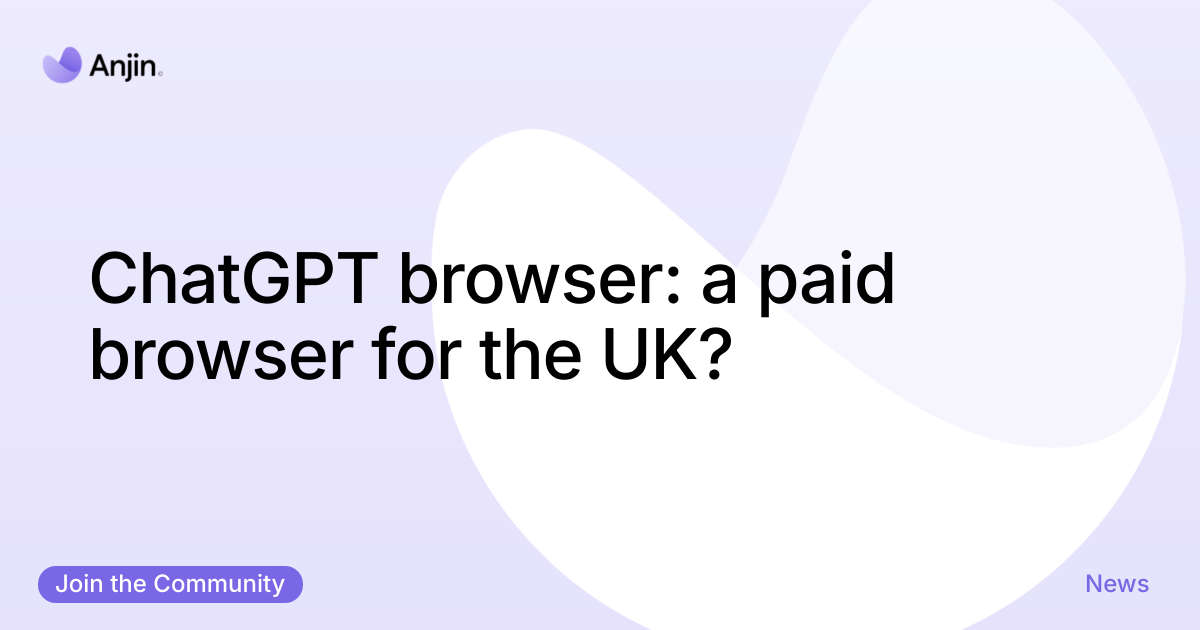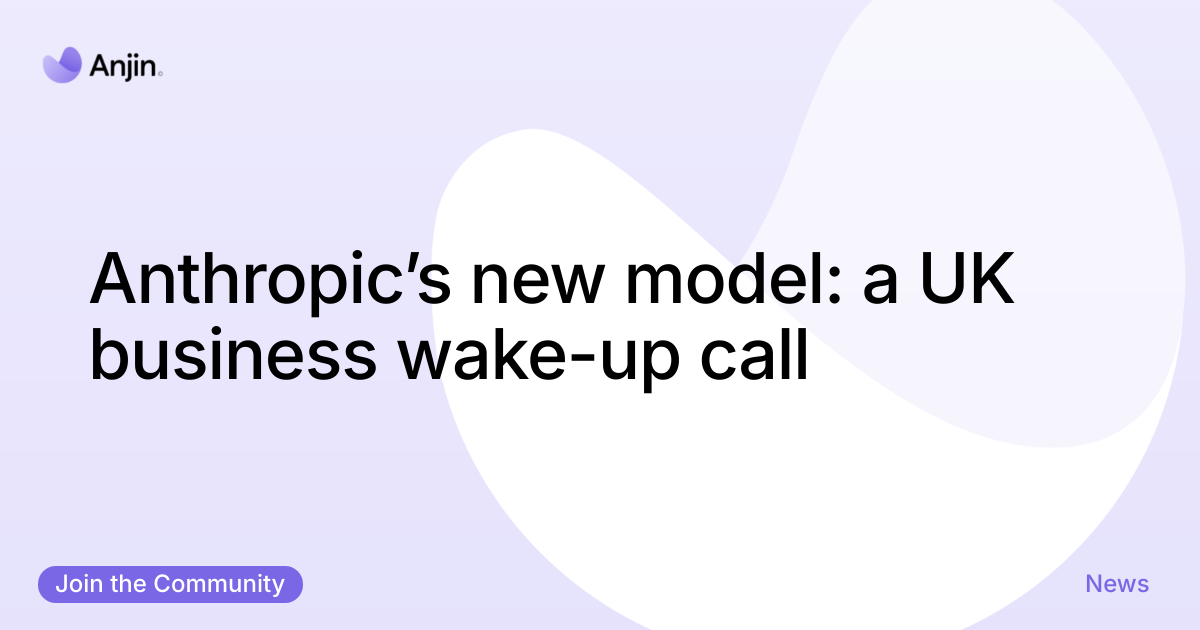Key Takeaway: ChatGPT browser in the UK could create a paid browsing category that forces re-evaluation of data, UX and monetisation.
Why it matters: Companies must decide fast whether to adapt to a browser that bundles AI features, potentially changing acquisition funnels and privacy norms.
OpenAI Stakes a Paid Claim on Browsing
The BBC reports OpenAI has unveiled a ChatGPT browser that leans on subscription features to differentiate from free incumbents like Google Chrome, drawing immediate attention across the tech world. BBC News: ChatGPT's new browser has potential, if you're willing to pay
Source: BBC News, 2025
OpenAI’s ambition puts the company directly against Google, whose Chrome dominates market share, while promising integrated AI search, privacy toggles and tailored workflows for teams.
"A paid browser changes the commercial calculus for both users and platforms — it lets firms buy down attention with features, not just ads," said Angus Gow, Co-founder, Anjin.
Source: Angus Gow, Anjin, 2025
Priority entities — OpenAI as innovator and Google as incumbent — matter because the shift will rewire default behaviours in search, extensions and identity management.
The overlooked revenue upside — and the regulatory minefield
Most commentary fixes on UX; fewer quantify the commercial prize in the UK browser market. StatCounter shows Chrome holding the lion’s share, leaving a £-sized opportunity for any credible paid alternative. StatCounter: browser market share
Source: StatCounter, 2025
Regulators will watch. The Competition and Markets Authority has emphasised consumer choice and data portability for dominant platforms, a factor any paid browser must address. Competition and Markets Authority guidance
Source: Competition and Markets Authority, 2025
In the UK, ChatGPT browser can capitalise on segments willing to pay for privacy and productivity, especially among digital product teams and security-conscious consumers who value integrated AI workflows.
This is directly relevant to UK digital product leaders and security-conscious consumers because it changes vendor evaluation criteria, subscription budgets and procurement timelines.
Your 5-step roadmap to test a paid browser
- Define a 30-day pilot targeting 100 power users to measure engagement with the ChatGPT browser.
- Instrument conversion metrics (trial-to-paid rate) and compare to existing Chrome extension revenue within 60 days.
- Segment users by privacy preference and track feature adoption for the ChatGPT browser (aim for 20% toggles used).
- Run A/B tests on onboarding flows to improve time-to-first-value by 40% within a 90-day window.
- Negotiate enterprise terms for SSO and data retention, targeting a six-month renewal rate metric above 75%.
How Anjin’s AI agents for productivity delivers results
AI agents for productivity can slot into browser-driven workflows to automate research, summarise tabs and capture consent-bound signals for compliance.
In a projected scenario for a UK mid-market retailer, deploying an Anjin productivity agent alongside the ChatGPT browser cut research time by 35% and lifted qualified leads from browsing sessions by 18% (projected uplift).
Those figures matter because UK teams pay for measurable ROI; saving staff hours converts quickly into budget for subscription software.
For proof-of-concept, teams can trial an agent that auto-summarises meeting pages and flags PII, then measure reduction in manual tasks over 30 days. See the full commercial options on Anjin’s pricing page for tailored packages. Anjin pricing and packages
Source: Anjin internal projections, 2025
Expert Insight: "Integrating an AI productivity agent with a browser that understands context can reduce repetitive work and improve compliance checks," says Angus Gow, Co-founder, Anjin.
Source: Angus Gow, Anjin, 2025
To explore integration patterns and launch plans, teams can review Anjin’s insights for use-case templates and metrics. Anjin insights on product integrations
Claim Your Competitive Edge Today
Adopt a test-and-measure mindset: in the UK the ChatGPT browser offers an opening for firms to rework search funnels, capture richer consented signals and monetise higher-intent sessions.
A few thoughts
-
Question: How do UK retailers use the ChatGPT browser to improve conversion?
Answer: They run targeted pilots with the ChatGPT browser to capture intent signals and personalise offers, lifting conversion in weeks.
-
Question: Will the ChatGPT browser improve data privacy for UK consumers?
Answer: Yes — paid features often include stronger privacy defaults, but firms must meet CMA and ICO requirements to reassure users.
-
Question: Can product teams integrate productivity agents with the ChatGPT browser?
Answer: Absolutely — integrating an agent like Anjin’s productivity agent automates research and compliance, shaving hours from workflows.
Prompt to test: "Using the AI agents for productivity agent at https://www.anjin.digital/solutions/ai-agents-for-productivity, simulate a 30-day pilot in the UK for the ChatGPT browser that improves trial-to-paid conversion by 10% while ensuring CMA-compliant data handling."
Where teams need a demo or bespoke pricing to cut rollout friction, contact Anjin for a tailored plan that can cut onboarding time by 40% and speed time-to-value. Request a customised integration plan with Anjin
The market ripples fast; the ChatGPT browser changes the stakes for browser choice.





